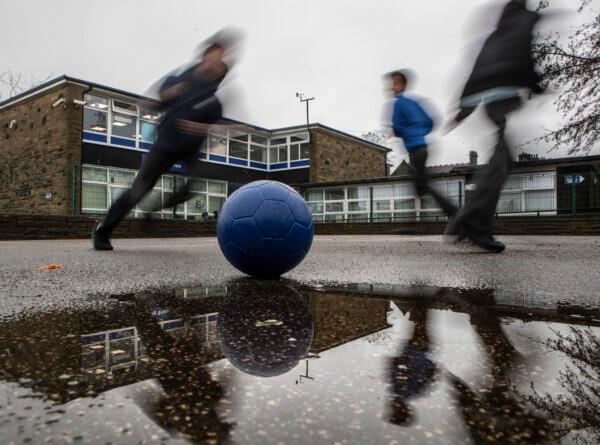A programme which focused on teaching children to manage everyday negative feelings shows promise in promoting wellbeing in pupils, a study funded by the Department for Education has found.
SSW is a mental health awareness intervention which helped pupils normalise emotions like sadness and stress, and teach them how to tell these feelings apart from mental ill health.
Researchers found that SSW “significantly improved” mental health awareness in primary school children, and when the programme was delivered in full, “a significant rise in mental health literacy was seen in secondary schools.”
Following the results, Anna Freud, a mental health charity for children and families, said it was rolling out training to support staff across the UK in delivering SSW in both primary and secondary schools.
‘Unintended Consequences’
Two other strategies, Mindfulness-Based Exercises and Relaxation Techniques, also showed promise. However, researchers noted that while these programmes had positive effects, they also led to adverse outcomes for certain age groups and student populations.Mindfulness-Based Exercises “significantly reduced emotional difficulties” in secondary schools. But in primary schools “there was evidence that increasing levels of implementation significantly increased emotional difficulties,” including children with prior emotional difficulties and those with special educational needs.
When used with primary school pupils, Relaxation Techniques “significantly reduced emotional difficulties.”
However, when used in secondary schools “emotional difficulties increased significantly with the frequency of implementation.”
Deighton said, “We found that some of the interventions trialled are only effective when delivered in full or for certain groups, but can cause unintended consequences for some.”
She said schools would need to monitor the impact of these interventions, noting their impact alone “is small, and should be part of a wider, whole-school approach to mental health and wellbeing.”
Worsening Mental Health Among Children
The NHS’s 2023 Mental Health of Children and Young People survey found that one in five children (20.3 percent) aged 8 to 16 years had a probable mental disorder, up from 12.5 percent in 2017.This was in comparison to a 10.1 percent increase in all cause admissions during the same time period.
Damian Wilde, a consultant clinical psychologist with extensive experience working with children and adults, said that the reasons for these rising figures are complex and not down to one cause alone.
Wilde told The Epoch Times that one element could be children engaging with the internet and social media sites, which can “amplify everyday understandable worries and concerns.”
Lack of Opportunity
Wilde, who has a doctorate in clinical psychology, said, “There are a number of factors which may lead to poor psychological health, but one of them is lack of opportunities,” adding that poverty, inequality, and a lack of access to leisure and social activities were also factors.He added that mental health can be impacted “if someone lacks access to green space, good quality food, or doesn’t have an adult in their life to comfort them when they feel upset.”

Wilde explained that basic activities, like play, can improve children’s mental wellbeing.
Poverty
However, poverty can impede this access, he said, noting that many after school and half term clubs cost money.The NHS survey found that 26.8 percent of children aged eight to 16 with a probable mental disorder had a parent who could not afford for their child to take part in activities outside school, compared with 10.3 percent of those unlikely to have a mental disorder.
Wilde stressed, however, that simple approaches are not in and of themselves the answer for complex mental health problems, where professional work is essential.
“I provide a lot of psychotherapy with people who are really struggling and sometimes, good quality psychological interventions are needed. However, we shouldn’t forget the core needs of life. That’s if people can access those things. Sometimes when people are really struggling, they can’t. Sometimes they don’t feel well enough to access the simple things,” the clinical psychologist said.







